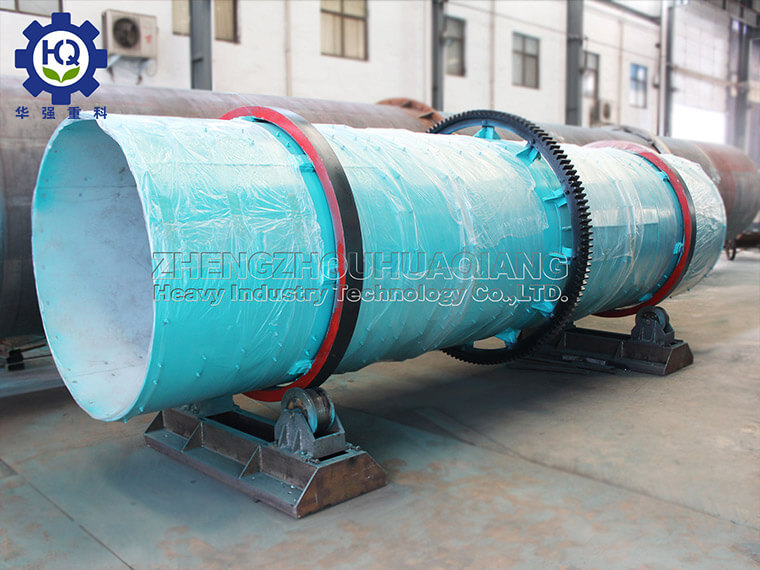The rotary drum granulator is widely used in fertilizer manufacturing and other industrial fields, and its advantages are mainly reflected in the following aspects:
Easy to operate and maintain:
The structure of the rotary drum granulator is relatively simple, easy to operate, and user-friendly. Meanwhile, due to its simplified design, daily maintenance and troubleshooting are also relatively convenient, reducing maintenance costs and downtime.
Uniform granulation effect:
The rotary drum granulator can uniformly process materials and form particles of consistent size and shape. This uniformity is crucial for ensuring consistency in fertilizer quality and improving crop absorption efficiency.
Wide applicability:
This granulator is capable of processing various types of raw materials, including organic matter, inorganic matter, and their mixtures. Both dry materials and materials with certain humidity can be effectively granulated under appropriate conditions.
High production flexibility:
The rotary drum granulator can flexibly control the size and density of particles by adjusting the speed, water spray system, and feeding rate of raw materials. This flexibility enables the machine to adapt to the needs of different product specifications.
Low energy consumption:
Compared to other types of granulators, such as roller extrusion granulators, rotary drum granulators have lower energy consumption. This is mainly because its granulation process relies mainly on centrifugal force and the viscosity of the material itself, without the need for additional high pressure or high temperature.
High production efficiency:
The rotary drum granulator can operate continuously, process large amounts of materials, and achieve efficient batch production. This is particularly important for large-scale fertilizer production, as it can meet the demand for high yields.
Good cost-effectiveness:
Due to its simple operation, low maintenance costs, and low energy consumption, the rotary drum granulator has demonstrated high cost-effectiveness in long-term operation. For fertilizer manufacturers, this helps to reduce production costs and improve market competitiveness.
Environmentally friendly:
Low energy consumption and simple structure result in minimal environmental impact during the production process of the rotary drum granulator. This is a significant advantage for modern industries that pursue sustainable production and reduce their carbon footprint.
In summary, the rotary drum granulator occupies an important position in the fertilizer manufacturing industry and other industrial fields that require granular materials due to its advantages of easy operation, high production flexibility, low energy consumption, and good cost-effectiveness. By rational design and optimization of process parameters, the rotary drum granulator can efficiently produce high-quality granular products.